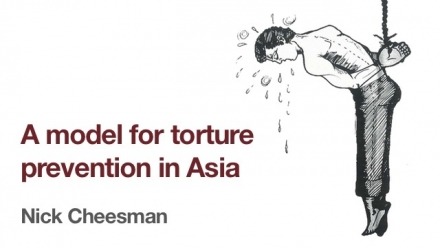The possibility of pragmatic critique

Presented by Interpretation, Method and Critique (IMC) Network and Research Cluster
The word today is that critique is in crisis. Somehow critique has become an obstacle to the types of progressive political and social change with which it once had an affinity. Erstwhile critical scholars now urge their counterparts to reevaluate critique, or dispense with it altogether. Instead, we are supposed to take pragmatic policy seriously, which is to say, to concentrate on research that will contribute to ameliorative rather than radical action for social change.
I think the choice between critique and pragmatism is a false one. Critique is a research practice that opens up the possibilities for effecting transformative change through politically animated, historically situated inquiry into conditions of the present. As such, it is not an obstacle to pragmatic inquiry into instituted practices of violence and injustice. On the contrary, a pragmatic sensibility can enable precisely this kind of inquiry, by contributing to explanatory diagnoses of the conditions that give rise to these practices, while also offering a characteristically hopeful attitude that social transformation is possible.
In this talk, I will show how it might be possible to critique pragmatically, by recounting a model for torture prevention in Asia that came out of a campaign against torture by police in the south of Sri Lanka. While the campaign expressly sought to end torture by the police, it was not just a campaign against torture. Its greater goal was to motivate hopeful action for the possibility of social equality. The anti-torture advocacy became a means, important on its own terms but not only on those terms, of moving towards the larger, utopian goal, through a critique of conditions that made torture possible. I conclude by considering what lessons might be taken from the model with which to undertake work elsewhere in a pragmatic critical mode.
Nick Cheesman is a Fellow in the Department of Political and Social Change, Australian National University. His current research is on torture and political order in mainland Southeast Asia.
This talk is part of the programme of events organized by the Interpretation, Method and Critique network at the Australian National University. For more about the network and sign up for emails visit the website.








